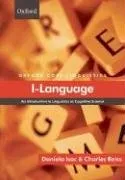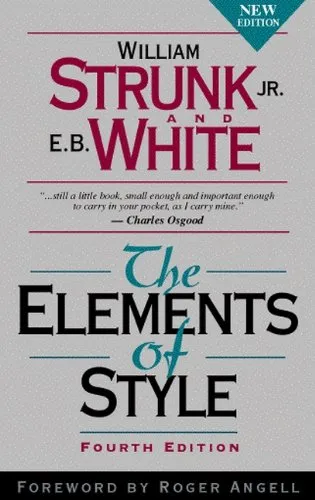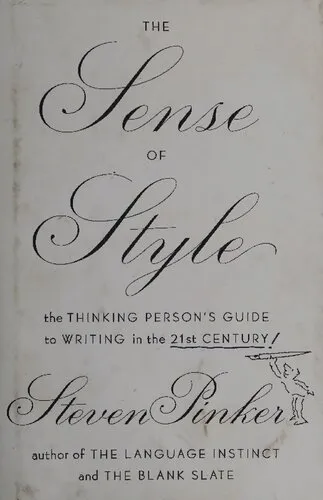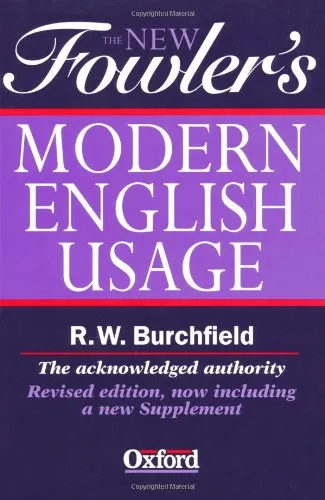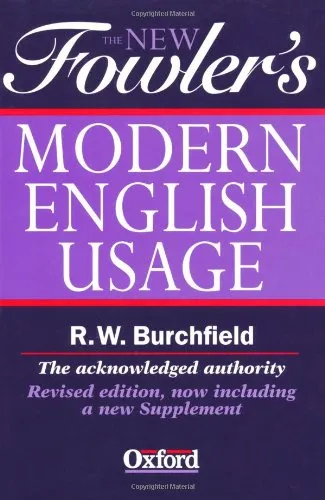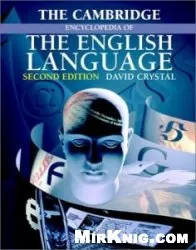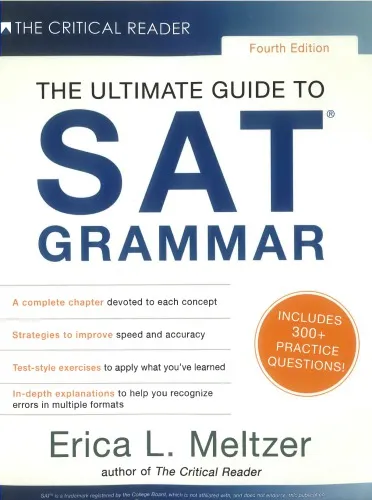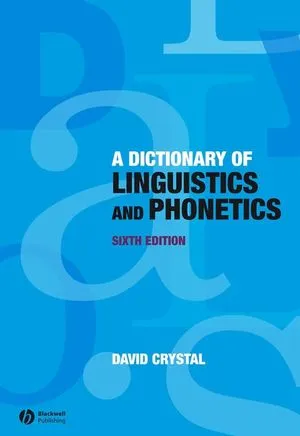I-Language: An Introduction to Linguistics as Cognitive Science
4.0
بر اساس نظر کاربران

شما میتونید سوالاتتون در باره کتاب رو از هوش مصنوعیش بعد از ورود بپرسید
هر دانلود یا پرسش از هوش مصنوعی 2 امتیاز لازم دارد، برای بدست آوردن امتیاز رایگان، به صفحه ی راهنمای امتیازات سر بزنید و یک سری کار ارزشمند انجام بدینکتاب های مرتبط:
معرفی کتاب 'I-Language: An Introduction to Linguistics as Cognitive Science'
کتاب 'I-Language' نوشته دانیلا ایساک و چارلز ریس یکی از منابع برجسته در زمینه زبانشناسی به عنوان یک علم شناختی است. این کتاب به خوانندگان کمک میکند تا به طور عمیقتری با مفهوم زبان به عنوان یک سیستم شناختی آشنا شوند و به چیستی زبان به عنوان یک توانایی فردی بپردازند.
خلاصهای از کتاب
کتاب 'I-Language' نگاهی دقیق به مفهوم I-language دارد که در مقابل E-language قرار میگیرد. I-language به ساختارهای ذهنی و دانش درونی فرد درباره زبان اشاره دارد. نویسندگان این کتاب با استفاده از رویکردهای شناختی و زبانی، به بررسی ماهیت ذاتی و اکتساب زبان میپردازند. این کتاب به گونهای طراحی شده است که هم برای کسانی که تازه وارد دنیای زبانشناسی شدهاند و هم برای دانشجویان پیشرفتهتر قابل استفاده باشد.
نکات کلیدی
- تعریف دقیق I-language و تمایز آن از E-language
- بررسی زبان به عنوان یک ساختار شناختی در مغز
- تأکید بر نقش ساختارهای ذهنی در پردازش زبان
- مطالعه تأثیرات شناختی بر یادگیری و توسعه زبان
نقلقولهای معروف از کتاب
"زبان چونان پنجرهای است به سوی درک عمیقتر از ذهن انسان و تواناییهای شناختی وی."
"درک زبان نیازمند درک اصول ذهنی و شناختی است که هر فرد از آن برخوردار است."
چرا این کتاب مهم است؟
کتاب 'I-Language' به دلیل ارائهی رویکردی نوین در حوزه زبانشناسی و بررسی زبان به عنوان یک پدیده شناختی، اهمیت فراوانی دارد. این کتاب به دانشجویان، پژوهشگران و علاقهمندان به علم زبانشناسی و علوم شناختی کمک میکند تا از دیدگاههای جدید درباره زبان و ساختار ذهنی آن بهرهمند شوند. با درک عمیقتر I-language، مخاطبان میتوانند به تحلیل بهتر و دقیقتری از فرآیند یادگیری و استفاده از زبان دست یابند.
Introduction to 'I-Language: An Introduction to Linguistics as Cognitive Science'
Welcome to a journey into the fascinating world of linguistics, where language is explored as an integral part of cognitive science. 'I-Language: An Introduction to Linguistics as Cognitive Science' is a comprehensive exploration of the inner workings of language, its cognitive dimensions, and its significance in human cognition. This book is co-authored by esteemed linguists Daniela Isac and Charles Reiss, providing invaluable insights into the realm of linguistic theory and its cognitive underpinnings.
Detailed Summary of the Book
'I-Language' serves as an essential resource for understanding the intersection of linguistics and cognitive science. The book delves into the concept of I-language, which refers to the internalized linguistic knowledge inherent to individual speakers. Contrasting with E-language, which encompasses external, observable language, I-language emphasizes the internal, mental representations that constitute a speaker's linguistic competence.
Throughout the book, Isac and Reiss discuss various themes related to language processing, acquisition, and evolution, blending theoretical and empirical studies. The authors introduce seminal concepts of generative grammar, pioneered by Noam Chomsky, and illustrate how these ideas revolutionized the study of language and mind. By integrating cognitive science principles, the book reveals language as a mental process deeply rooted in our neurological architecture.
The chapters are strategically organized to guide readers through fundamental topics such as phonology, syntax, semantics, and their related cognitive processes. The book also addresses critical issues in psycholinguistics and neurolinguistics, showcasing how linguistic theories apply to real-world language processing. Each chapter is meticulously articulated, offering a thorough understanding of how language operates within the human brain.
Key Takeaways
- Understanding the distinction between I-language (internal, mental language systems) and E-language (external, observable language).
- A comprehensive introduction to generative grammar and its implications for cognitive science.
- Insights into the cognitive processes involved in language acquisition and processing.
- Exploration of the interplay between linguistics and areas such as psychology and neuroscience.
- In-depth analysis of syntax, phonology, and semantics from a cognitive perspective.
Famous Quotes from the Book
“Language is not just a collection of arbitrary signs; it is a complex system that reflects the mind’s natural capacity to generate infinite expressions from finite means.”
“I-language is a powerful concept that emphasizes the cognitive and mental dimensions of linguistic capability inherent to every individual.”
Why This Book Matters
'I-Language' is pivotal not only for students and scholars of linguistics but also for those interested in cognitive science and psychology. The book demystifies how language functions as a cognitive faculty, offering a rigorous analysis that contributes to our understanding of human cognition as a whole.
By bridging generative grammar with cognitive science, Isac and Reiss offer a transformative view that challenges traditional perspectives on language. They underscore the importance of studying language as a cognitive entity, thus highlighting its role in shaping human thought and communication. For linguists, educators, and cognitive scientists, 'I-Language' serves as a foundational text fostering interdisciplinary collaboration and knowledge.
As we advance further into the 21st century, understanding the cognitive bases of language will continue to be crucial in various fields including artificial intelligence, language teaching, and neurolinguistics. This book is a significant stepping stone in that ongoing exploration, positioning readers to engage critically with current and future developments in linguistic research.
دانلود رایگان مستقیم
شما میتونید سوالاتتون در باره کتاب رو از هوش مصنوعیش بعد از ورود بپرسید
دسترسی به کتابها از طریق پلتفرمهای قانونی و کتابخانههای عمومی نه تنها از حقوق نویسندگان و ناشران حمایت میکند، بلکه به پایداری فرهنگ کتابخوانی نیز کمک میرساند. پیش از دانلود، لحظهای به بررسی این گزینهها فکر کنید.
این کتاب رو در پلتفرم های دیگه ببینید
WorldCat به شما کمک میکنه تا کتاب ها رو در کتابخانه های سراسر دنیا پیدا کنید
امتیازها، نظرات تخصصی و صحبت ها درباره کتاب را در Goodreads ببینید
کتابهای کمیاب یا دست دوم را در AbeBooks پیدا کنید و بخرید
1471
بازدید4.0
امتیاز0
نظر98%
رضایتنظرات:
4.0
بر اساس 0 نظر کاربران
Questions & Answers
Ask questions about this book or help others by answering
No questions yet. Be the first to ask!
